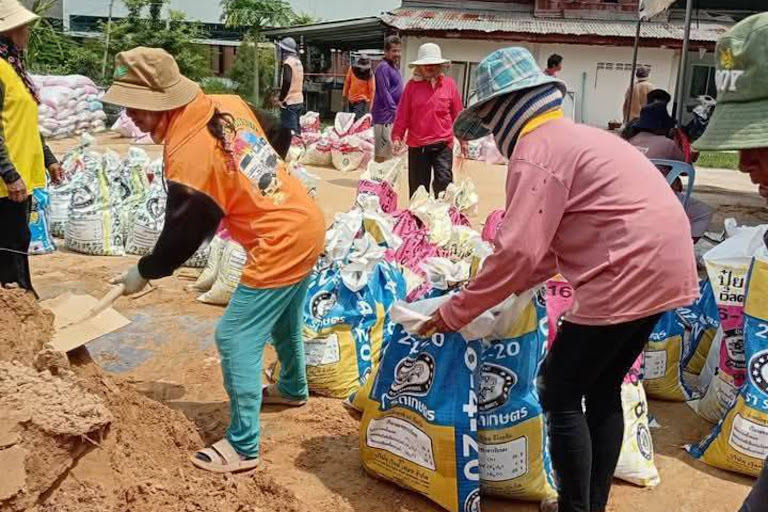Thailand Border School Builds Bunkers; Conflict Shapes Students' Lives
Thai school near Cambodia constructs bunkers and evacuation plans, highlighting a global trend of normalizing crisis response for children.

The news out of Ubon Ratchathani province in Thailand offers a stark, and increasingly common, glimpse into how geopolitical tensions are becoming deeply interwoven into the fabric of everyday life. As reported by the Bangkok Post, a local school, Ban Paet Um, is constructing sandbag bunkers to protect students and staff from escalating tensions along the Thai-Cambodian border. This isn’t merely a local story; it’s a symptom of a global system struggling to manage conflict and protect its most vulnerable.
It’s easy to see this as a contained, unfortunate event — a localized dispute with tangible, if disheartening, consequences. But framing it solely through that lens obscures the larger, more worrying trend: the normalization of crisis response as a default operating procedure, particularly in zones of geopolitical instability. When a school’s first priority is not education but survival, we must ask ourselves what kind of world we are building for the next generation.
The proactive measures taken by Ban Paet Um school, including preparing an emergency evacuation plan, highlight a critical aspect of resilience in the face of geopolitical volatility. Yet, resilience shouldn’t be mistaken for acceptance. The very fact that these measures are necessary underscores a systemic failure: the inability of diplomacy and international relations to provide lasting security.
Consider the multi-layered implications:
- The psychological impact on children: Growing up in an environment where the threat of conflict is ever-present can lead to lasting trauma and anxiety. What does it mean for a child’s sense of security when their school becomes, in part, a fortified shelter?
- The diversion of resources: Resources spent on building bunkers and preparing evacuation plans are resources that could be used for education, infrastructure, or other essential services. Border communities, often already marginalized, bear a disproportionate burden.
- The erosion of trust: When governments fail to provide adequate protection, communities are forced to take matters into their own hands. While this demonstrates remarkable resourcefulness, it can also erode trust in government institutions.
These actions, while understandable and perhaps even necessary in the short term, also risk cementing a perception of instability, potentially fueling a cycle of fear and further escalating tensions. It’s a dangerous feedback loop where preparation for conflict becomes a self-fulfilling prophecy. The building of bunkers becomes both a reaction and a statement.
The image of children attending classes within the shadow of sandbag walls encapsulates a chilling truth: the price of geopolitical failure is often paid in the innocence and security of the next generation.
This situation in Ubon Ratchathani underscores the urgent need for de-escalation through diplomatic channels. While the government maintains its commitment to resolving the dispute through peaceful dialogue, the reality on the ground suggests that dialogue is not enough. Addressing the root causes of the conflict, promoting regional stability, and investing in long-term peace-building efforts are essential to break the cycle of fear and build a future where children can learn and grow without the constant threat of violence. It requires a paradigm shift away from short-term crisis management and toward a proactive, holistic approach to conflict resolution.









